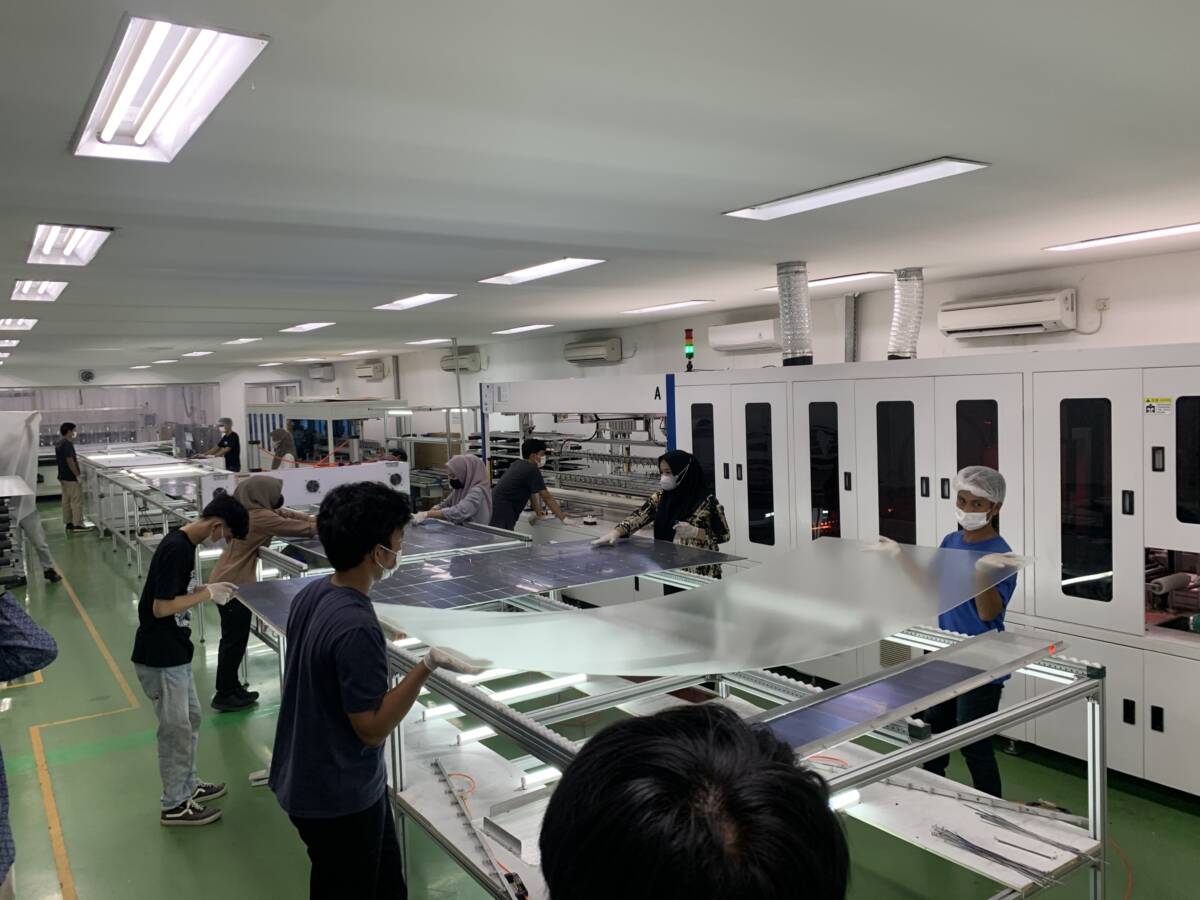Jakarta, 9 December 2024 – Increased greenhouse gas emissions from burning fossil fuels are a major contributor to global warming. To combat this, transitioning to clean energy sources is a necessary step. Solar power plants can be one of the solutions to create a cleaner and more sustainable world.
Based on the data IRENA (2024) Solar PV globally dominates renewable energy contributions, reaching 73% or 346 GW of total installed renewable energy capacity by 2023. Meanwhile in Indonesia, until August 2024, the installed solar energy capacity had only reached 0.7 GW. (IESR, 2024), of its total potential of up to 3,200 GW (Kementerian ESDM, 2023). To increase the amount of solar energy utilized, the Indonesian government revised the Domestic Component Level (DCL) policy for solar projects. The value of TKDN was lowered from 40% to 20% in order to increase the demand for solar energy.
The Institute for Essential Services Reform (IESR) visited solar module manufacturing companies in Indonesia in October 2024. This visit was carried out to see opportunities for the development of the solar module industry supply chain and evaluate the impact of government policies in encouraging the acceleration of the use of solar power plants in Indonesia.
Zaeny Ahmad, Head of Plan of PT Indonesia Solar Global, emphasized that the price of locally produced solar modules is not very competitive compared to imported products, where there is still a price difference of around 40% between them.
“The price of modules produced by local producers is around 15-17 cent/kwh, while imported solar modules cost 10-12 cent/kwh. Coupled with the TKDN relaxation rules for imported solar modules, local products will lose out,” Zaeny said.
This perspective from domestic solar industry players can serve as an evaluation of existing policies. IESR considers that it is necessary to increase the demand for solar module installations by relaxing solar module imports, as well as providing fair policies for domestic solar module producers, so that the main goal of sustainable development, namely that no one is left behind, can be achieved in this transition process.
Abraham Octama Halim, IESR’s Electricity System Analyst explained that there is a need for policies that support local industries to improve their competitiveness. The current TKDN relaxation is actually a challenge for local producers because it gives more space for imported products. In addition, regulations related to component import duty incentives and restrictions on imported solar modules need to be harmonized to make local products more competitive, both for government projects, SOEs, and the global market.
“The government must create a supportive environment for entities that want to accelerate the development of the solar module supply chain in Indonesia, through the perspective of an equitable energy transition, good and correct regulatory and policy governance, of course, it can accelerate the Net Zero Emission (NZE) target in Indonesia in 2060 or sooner,” said Abraham.

